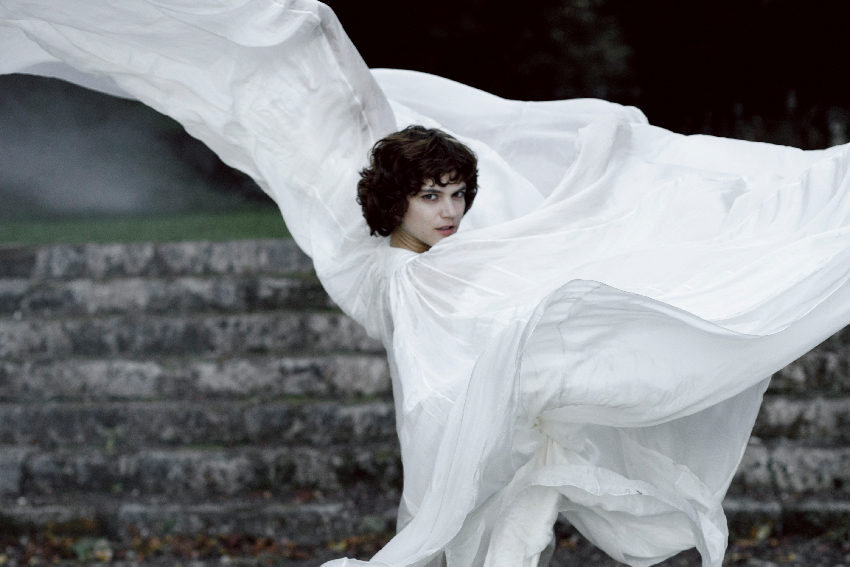Film Review: The Dancer (La Danseuse)

This handsome French/Czechproduced biopic from Stéphanie Di Giusto (adapting Giovanni Lista’s novel) is a sprawling, awkward and melodramatic piece that features a jumbled last quarter.
The performances save it, however, with striking star Soko (AKA Stéphanie Sokolinski) shining in a characterisation of great intensity, serious sensuality and what looks like genuine sweat and pain.
Marie Louise Fuller (Soko) is introduced living with her showboating French father Ruben (fabulous Denis Ménochet) in late-19th Century American Midwest. When he’s murdered, she retreats to New York and lives for a time with her uptight mother Lili (Amanda Plummer), whose association with the Temperance movement means that she’s soon furious with Marie for wanting to be a dancer and actress, and for uneasily sitting in for a would-be-dirty photo session.
Our heroine is also romanced, sort of, by ether-addled womaniser and drama queen Count Louis d’Orsay (played with creepy languidness by Gaspard Ulliel), and almost accidentally hits upon the beginnings of what would become the revolutionary Serpentine Dance. This leads her to Paris and a spot in the Folies Bergères, where she’s an immediate hit (and the film’s handle on the passing of time begins feeling iffy).
Having changed her name to Loïe, she’s eventually snapped up by the Paris Opera. There she’s allowed to develop her physically destructive performance with then-unprecedented lights, mirrors and stage effects, and start teaching gaggles of young women the art of dance. One of them is the ‘scandalous’ and conniving Isadora Duncan, as played by young Lily-Rose Depp (Johnny and Vanessa Paradis’ daughter), who filled in for Elle Fanning and certainly looks the part, even if her hoofing is rather more expert than her acting.
Like many biopics, this squashes too much into its running time and leaves you unsure even what century we’re in at certain points. All is forgiven whenever the near-feverish Soko takes to the stage in that billowing gown. She’s the one who ensures that this properly trips the light fantastic.
The Dancer is in cinemas now